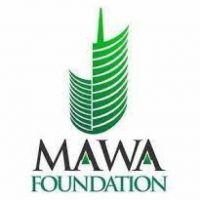Parents in Nasarawa state communities are lamenting how lack of access to the internet is affecting their children’s participation in online learning.
The parents who spoke to MAWA Foundation team that visited some communities in Nasarawa state to gauge the impact of COVID-19 say their kids could not participate in the online school during the pandemic lockdown because they do not have access to the internet.
The parents say they cannot afford the internet for their kids to participate in online classes because their income cannot feed their family let alone spending on data.
They, however, questioned why the government will introduce online learning as an alternative during the lockdown and did not make free data and internet access available for the kids.
Mrs. Rita Uloma, who spoke to the MAWA Foundation official in her Aso residence in Mararaba, said the online school for kids is a fantastic idea but asked who provides the internet for the children to access google and participate in the online learning.
Uloma told MAWA officials that many parents in her area cannot afford the kind of internet that will facilitate online learning, and, that makes it impossible for their kids to participate.
“Many of the parents do not have savings at the end of the month after expenditure, where will they get money to buy data for the children’s online classes”, Uloma told MAWA Foundation officials.
Miss Juliet Ibrahim, who spoke to MAWA Foundation in her New Karu residence, is worried that the Nigerian state has concluded that online learning is very possible without carrying out any feasibility study to find out that many Nigerians do not have access to quality internet because they cannot afford it.
“Parents that have three kids in school need unlimited internet to effectively participate in online learning, and, how many homes in Nigeria can afford unlimited internet,” Ibrahim told MAWA team.
She added that, as the government tries to adopt online learning as an alternative to addressing the challenge thrown at education by the COVID-19 lockdown, the reality that Nigeria has no access to the internet must be considered.
Mr. Anthony Ishaku, a resident of Ado, told MAWA Foundation officials that the government ought to have considered who buys the computers and data first before commencing their online school campaign.
“The Nigerian state cannot undertake online learning, there are no facilities to embark on the scheme and make it successful, many homes cannot afford internet, and the outbreak of COVID-19 does not give Nigeria the status of a modern state,” Ishaku said.
Rosemary Isaac, a teacher in one of the public primary schools in Keffi, told MAWA Foundation, apart from the parents not been able to afford data for online learning, many of the teachers are not computer literate and cannot facilitate online learning for kids.
Isaac said the government needs to train the teachers first before pushing for online learning as an alternative means of addressing the education gap during the lockdown.
Mr. Chima Chibuize, a teacher in the Uke community of Nasarawa state, while lamenting the effect of COVID-19, told the MAWA team that it is amazing to see a country that has a huge population of digital illiteracy adopt online learning.
Chibuize said for successful online learning to take place, there must be good computers and access to quality internet for the kids, and questioned how many Nigerians can afford that.
Some of the parents said that their experience in the online learning shows in every 20 kids, one out of them participated. They, however, said that online learning is exclusively for the rich while pointing out that the poor cannot afford the internet.
MAWA Foundation interviews with parents show many children especially from poor homes do not have browsing gadgets and access to the internet.
The Nigerian state through Mr. Isa Pantami, the Minister of communications and the digital economy, launched online learning as an alternative for children’s education during the COVID-19 lockdown.
Good as the initiative appears; the Nasarawa community parents have faulted it, saying it is not affordable considering the economic viability of the parents and have since asked who bears the cost, government, or parents.
This report is supported by the Open Society Initiative for West Africa (OSIWA)
